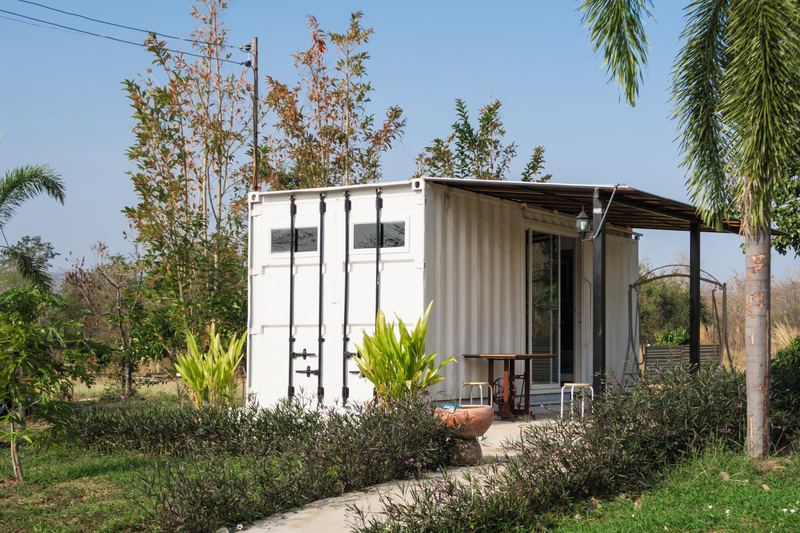Green Waste: Strategies to Avoid Landfills
Posted on 19/03/2025
Green waste, also known as organic waste, includes grass clippings, leaves, branches, kitchen scraps, and other biodegradable materials. Properly managing green waste not only helps reduce the volume of waste sent to landfills but also offers substantial environmental benefits. This article explores various strategies to efficiently handle green waste and avoid landfilling it.
Understanding the Importance of Managing Green Waste
Sending green waste to landfills is an unsustainable practice that carries several drawbacks. When organic waste decomposes in these anaerobic (oxygen-deprived) environments, it releases methane--a potent greenhouse gas that significantly contributes to climate change. Furthermore, landfills require large areas of land, which could be used more productively for agriculture or natural habitats.
Effective green waste management presents numerous advantages, including reducing greenhouse gas emissions, saving landfill space, creating useful by-products such as compost and mulch, and fostering a more sustainable lifestyle. To achieve these benefits, implementing strategies like backyard composting, municipal composting programs, and industrial composting systems is crucial.

Backyard Composting: A Practical Solution
One of the simplest and most effective ways to manage green waste is through backyard composting. This method is particularly advantageous for households with gardens, as it turns waste into nutrient-rich compost that can be used to improve soil health. Here's how to get started:
1. Choose a Suitable Compost Bin
To kickstart backyard composting, selecting the right compost bin is essential. There are various options available, including open bins, tumblers, and enclosed systems. Choose based on your available space, the volume of waste you generate, and your budget. Open bins are generally more affordable but require greater maintenance, while tumblers and enclosed systems offer more convenience and better odor control.
2. Understand the Basics of Composting
Composting involves creating the right conditions for microorganisms to break down organic material into compost. Key components include:
- Browns: These carbon-rich materials include dried leaves, straw, cardboard, and paper. Browns help to aerate the pile and provide a balanced carbon-to-nitrogen ratio.
- Greens: Nitrogen-rich materials, such as fresh grass clippings, vegetable scraps, and coffee grounds. These accelerate the decomposition process.
- Water: Maintaining moisture is crucial for microbial activity. The compost pile should be as damp as a wrung-out sponge.
- Air: Oxygen is needed for aerobic decomposition. Regularly turning the pile helps to introduce air and quicken the breakdown process.
3. Layering and Managing the Pile
Start your compost pile by layering greens and browns in a ratio of about 1:3. Continue adding waste in layers, making sure to mix and aerate the pile regularly. Using a compost thermometer can help monitor the temperature, ensuring it stays between 110?F and 160?F for optimal decomposition.
Municipal Composting Programs: Community Efforts
Municipal composting programs offer a broader approach to managing green waste, catering to entire communities. These programs collect organic waste from households and businesses, process it in large-scale facilities, and produce compost for public use. Such programs are crucial in urban areas where space constraints limit individual composting efforts.
1. Participation and Separation
Community members need to actively participate by separating green waste from other types of waste. This usually involves placing organic material into designated bins, which are collected by the municipality on a scheduled basis. Effective education campaigns are necessary to ensure everyone knows what can and cannot be composted.
2. Industrial Composting Facilities
Municipal composting typically takes place in industrial facilities equipped to handle large volumes of organic waste. These facilities use advanced techniques, like windrow composting (long piles that are turned periodically), in-vessel composting (enclosed chambers), or static pile composting (aerated piles that don't need turning). These methods ensure efficient decomposition and high-quality compost production.
3. Benefits and Challenges
Municipal composting programs significantly reduce landfill waste and generate valuable compost that can be used in public parks, gardens, and agricultural projects. However, they also face challenges such as contamination of organic waste with non-compostable materials, logistical issues in waste collection, and the need for consistent community engagement and cooperation.

Other Green Waste Management Strategies
In addition to backyard and municipal composting, several other strategies can help manage green waste effectively:
1. Vermicomposting
Vermicomposting uses worms to decompose organic waste, producing rich, nutrient-dense compost known as worm castings. This method is ideal for small spaces, such as apartments or urban homes, as it requires minimal setup and can be done indoors. Worm bins are available commercially, or you can create your own using a suitable container and red wiggler worms.
2. Grasscycling
Grasscycling involves leaving grass clippings on the lawn after mowing instead of collecting them. The clippings decompose naturally, returning valuable nutrients to the soil. This method saves time and effort, reduces the need for chemical fertilizers, and keeps green waste out of landfills.
3. Mulching
Mulching involves spreading organic material, such as wood chips, leaves, or straw, over soil as a protective layer. Mulch helps retain soil moisture, suppress weeds, and improve soil health. It can be produced from various green waste sources, effectively recycling organic material while enhancing garden and landscape aesthetics.
4. Anaerobic Digestion
Anaerobic digestion is a method of breaking down organic material in the absence of oxygen to produce biogas (a mixture of methane and carbon dioxide) and digestate (a nutrient-rich substance). This process takes place in sealed tanks and is used to manage large quantities of green waste, often in conjunction with other organic waste from food manufacturing or agriculture. The biogas can be used as a renewable energy source, while the digestate can be employed as fertilizer.
Conclusion
Effective green waste management is a multifaceted approach that involves individual actions, community programs, and industrial systems. By adopting strategies such as backyard composting, participating in municipal programs, and utilizing other innovative methods like vermicomposting, grasscycling, mulching, and anaerobic digestion, we can significantly reduce the amount of organic waste ending up in landfills.
Embracing these practices not only mitigates greenhouse gas emissions but also produces valuable by-products that enrich our soils and promote sustainability. As global awareness of environmental issues continues to grow, managing green waste responsibly becomes a shared responsibility critical for the health of our planet.
Latest Posts
Resource Efficiency with Polystyrene Recycling
Essential Hacks for a Tidy Home




